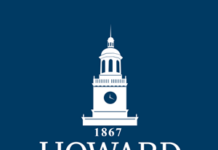 Howard University in Washington, D.C., has launched its online executive MBA program. Online classes began this semester for the 42 credit hour degree program aimed at working professionals. The program is designed for students to complete course work in about 18 months while continuing to work full-time.
Howard University in Washington, D.C., has launched its online executive MBA program. Online classes began this semester for the 42 credit hour degree program aimed at working professionals. The program is designed for students to complete course work in about 18 months while continuing to work full-time.
Online classes will be taught by faculty of the Howard University School of Business. Barron H. Harvey dean of the School of Business, said, “We are excited to be the catalyst for this historic milestone at the university. This program offers a unique and exciting opportunity for emerging business leaders from across the nation to learn from our first-class faculty and industry leaders.”









